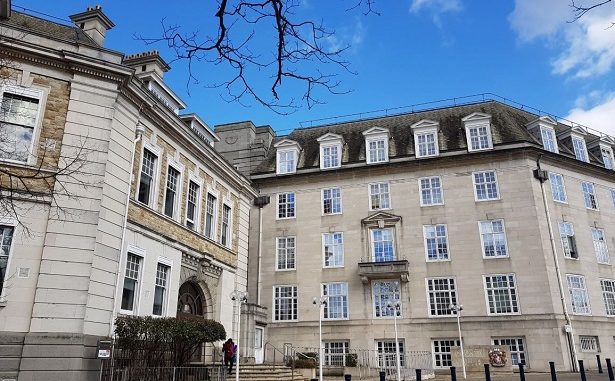
By Local Democracy Reporter Katie May Nelson
The average council tax bill for Kent County Council services is set to rise by £73 a year.
Kent County councillors voted to raise council tax by 4.995% this afternoon, meaning band D households will see a rise of £72.99 a year, or £1.40 a week.
Residents also pay tax precepts to the district council, police, the fire service and, and, depending on where they live, parish councils.
The precept for Kent County Council (KCC) is split into 3% for general services and 2% to fund adult social care.
Council tax is due to generate £876 million which makes up 66% of KCC’s £1.3 billion revenue budget.
The budget includes taking £12.5 million from the council’s reserve funds.
Council tax increases in Kent for every band (KCC’s share):
- Band A – £1,022.82. Increase per week: 94p
- Band B – £1,193.29. Increase per week: £1.09
- Band C – £1,363.75. Increase per week: £1.25
- Band D – £1,534.23. Increase per week: £1.40
- Band E – £1,875.17. Increase per week: £1.72
- Band F – £2,216.11. Increase per week: £2.03
- Band G – £2,557.05. Increase per week: £2.34
- Band H – £3,068.46. Increase per week: £2.81
During the authority’s budget meeting today (Thursday, February 9) – which lasted some seven hours – the difficulties facing the council were laid bare.
‘Changes in demand’
Deputy leader Cllr Peter Oakford (Con) said the biggest areas where increased spending is required are older people’s residential and nursing care, home to school transport, and children in care.
He said: “These increases come from a combination in changes in demand -which includes client complexity – market factors which include inflation, and recruitment challenges, especially in the care market.
“I do not believe there is a single councillor in this chamber today who wants to increase the level of taxation within the current economic climate.
“Collectively, we totally understand the pressures that residents of Kent are facing.
“We have got to make difficult decisions and include this increase, or we would need to make further, substantial decreases to the services that KCC provides.”
Pressures to continue
Council leader Roger Gough (Con) said a projected overspend of £60 million for the current financial year was coming down, and this was the first time this had happened in 22 years, before adding the pressures would continue into next year.
He added: “We will see a draw down in our reserves this year as a result of the fact it is almost certain that the 2022/23 budget will not be balanced in the way that we have in 22 years.”
Consultation issue
Councillors expressed their frustration at having to consider the budget despite the fact some services which stand to be cut haven’t yet been confirmed, as they are still out for consultation.
Cllr Trudy Dean (Lib) said she wouldn’t be able to inform her residents of the budget’s impact on them for this reason, adding: “On the really big ticket issues with regards to the unprecedented number of policy changes that we are making, I cannot tell them because a raft of them are out for public consultation.”
One of these is a 10-week long consultation which is currently underway over the authority’s plans to cut the number of children’s centres.
Travel Saver card
Councillors were also concerned about proposals, which have yet to be confirmed, to increase the cost of the KCC Travel Saver card for secondary school pupils, which is currently £450.
Cllr Mark Hood (Green), said: “We have a situation with successive rises in the Kent Travel Saver, that’s going to be projected to go up to £600.
“This means it’s a real threat that significant numbers of parents are not going to be able to send their children to school, even if they are lucky enough to have the school bus service after the cuts that have been inflicted across the commercial network.”
Community warden service cuts
Cllr Mike Hill (Con), said: “I am hugely disappointed that it’s been found necessary to make significant reductions to the community warden service, particularly as the recent Community connectors project is showing real progress and could provide important benefits both adult social care and public health.
“I am continuing to seek alternative funding streams to allow this work to continue.”
Alternative budget
Labour councillors presented an alternative budget, but this was voted down. Amendments were also unsuccessfully put forward to reduce the amount of funding being cut which goes to voluntary health services and to member’s grants, which can be spent on community projects.

